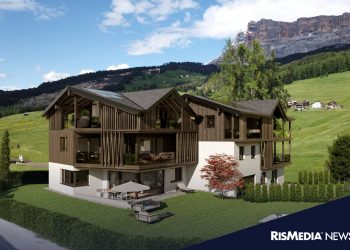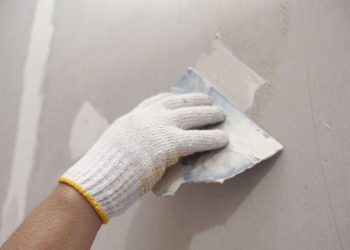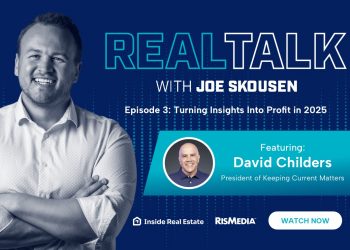By Lauren Tara Lacapra
RISMEDIA, May 25, 2007-(WSJ.com)-Some real-estate brokers are beginning to tout their environment-friendly credentials to get an edge in a slowing housing market. But the brokers are discovering that selling green is harder than talking about it.
Living in homes boasting solar panels and other energy-saving additions is becoming more mainstream, but brokers must still convince developers and buyers that green features are worth the added cost. And even if clients are eager to buy, there is a shortage of properties offering the features.
More than 1,000 agents have taken a $395 course offered by a former U.S. Department of Energy official on the basics of what makes a house green — one that conserves energy and is close to public transportation, for example. After taking the course, they then can advertise themselves as “EcoBrokers” on their business cards and Web sites. Though that’s a tiny 0.3% of all U.S. real-estate professionals, similar initiatives are popping up to raise awareness and take advantage of wider public acceptance of issues such as global warming and growing concern about higher energy costs.
In North Carolina, the Home Builders Association of Durham, Orange and Chatham Counties has started a program to educate members about the advantages of green building features, including energy-efficient appliances or paint that emits fewer chemicals.
This year, Moss Real Estate Group started marketing itself as “New York’s first green brokerage.”
Chief Executive Chris Moss says he didn’t advertise his company as eco-friendly earlier, even though it has been using wind power and donating 1% of gross revenue to environmental charities for four years. The reason for his hesitation: worry that people would think he was more interested in “hugging trees” than closing a deal.
The added point of differentiation can help a Realtor’s chances of making a sale, says Kirk Fox, a Prudential agent in Chicago who in 2005 was one of the first to add the EcoBroker designation.
“When I first talked to people, it was about their energy bills,” says Mr. Fox, who is working with two buyers who recently contacted him because of his designation. “But now it’s really about their lifestyle; they eat at Whole Foods and drive a Prius,” Toyota’s hybrid vehicle.
The EcoBroker label was conceived by John Beldock, director of environmental analysis for the Department of Energy for three years until 1992. In addition to the course-taken online by most agents-his Evergreen, Colorado-based EcoBroker International is recruiting real-estate companies to become EcoBroker affiliates, which will identify them as sponsors of the initiative for an annual fee of $500 to $1,000. The company is close to breaking even, says Beldock.
Georgette Chapman Phillips, chair of the real-estate department at the University of Pennsylvania’s Wharton School, says green credentials are a “selling point, just as much as the pool and the garage.” She says brokers may not need to be certified to promote eco-friendly houses. “This is more common sense than scientific learning,” she says.
Beldock equates the certification to a degree: “That’s like saying NYU and Cornell aren’t necessary and you can get all your English and psychology training on the Internet.”
Brokers who have received the designation say they hope it will help win attention in a competitive home-selling industry.
“It may cost me like a percentage point more to add the green features, but the extra marketing bang I’m going to get…is worth it,” says Shaughn White, an EcoBroker in Washington D.C. since last December. “The buzz is out of control and there’s a bunch of Realtors sitting around in D.C. saying, ‘How can I capitalize on this?'”
Overall costs for new green construction vary based on the type and amount of green features, but are typically about 2% higher than conventional buildings, according to cost-benefit studies by Capital E, a Washington-based energy-efficiency consultant.
Outfitting a home with solar panels usually costs between $35,000 and $40,000, according to the Department of Energy. There are rebates and tax credits to offset that cost, though producing energy from solar panels still costs at least twice as much as using fossil fuels.
Susan Singer says her EcoBroker designation puts her “ahead of the curve in a good way, and kind of in a bad way.” Good because Ms. Singer, a Corcoran Group agent in Manhattan, says she now knows more about green real estate and how to sell it, but bad because there’s not a lot to sell. “My work right now is really educating developers,” says Singer.
Housing starts that meet prescribed efficiency standards accounted for $1.8 billion, or 0.3% of total starts in 2005, according to a study by McGraw-Hill Construction. It projects those starts will increase to $20 billion, or between 2% and 5% of the market, by 2010.
Some brokers are initiating projects or collaborating with builders and investors. Anne Ward, a broker in Santa Fe, N.M., is working on several green projects with real-estate developers. She helped Ed Brown, a 65-year-old U.S. Defense Department retiree, design a custom home in Santa Fe with solar technology, a water-harvesting system and energy-efficient air conditioning.
“One of the big motivations is saving energy as well as water, because we’re high-plains desert here and water is not at a premium,” says Brown, who plans to move into the $499,000 home in July.
Brown isn’t ready to go all green. He opted for a nonhybrid Toyota Highlander sport-utility vehicle, because the hybrid model cost $7,000, or 25%, more.
Source: http://online.wsj.com/article/SB117988443107111623.html.










